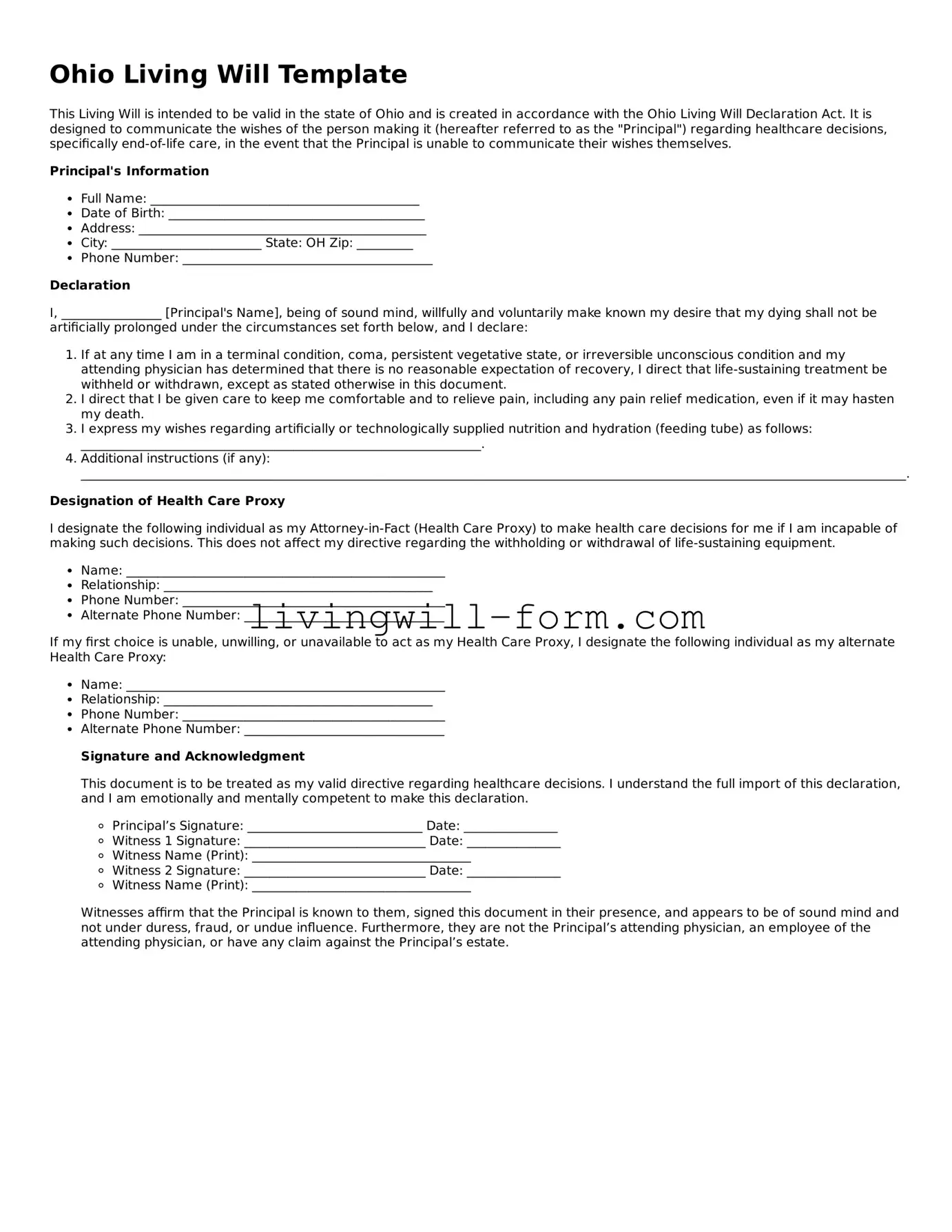What is a Living Will form in Ohio?
A Living Will in Ohio is a legal document that allows an individual to outline their preferences regarding medical treatment if they become unable to communicate or make decisions due to a serious illness or incapacitation. This includes instructions on the use of life-sustaining measures under certain conditions.
Who can create a Living Will in Ohio?
Anyone who is at least 18 years old, of sound mind, and able to understand the nature and significance of the document can create a Living Will in Ohio. This ensures that adults of all ages have the opportunity to make their healthcare wishes known in advance.
Do I need a lawyer to create a Living Will in Ohio?
No, it is not legally required to have a lawyer to create a Living Will in Ohio. However, consulting with a legal professional can provide valuable guidance and ensure that the document accurately reflects your wishes and complies with state laws.
How do I make my Ohio Living Will legally binding?
To make a Living Will legally binding in Ohio, it must be signed in the presence of two qualified adult witnesses or a notary public. The witnesses cannot be related by blood, marriage, or adoption and should not be beneficiaries of the signer's estate. This process ensures the authenticity and voluntariness of the document.
Can I change or revoke my Living Will in Ohio?
Yes, an individual has the right to change or revoke their Living Will at any time as long as they are of sound mind. This can be done by creating a new Living Will, making a written and signed revocation, or by clearly expressing the intention to revoke it verbally in the presence of a witness.
What should be included in an Ohio Living Will?
An Ohio Living Will should include clear instructions on the use of life-sustaining treatment, artificial nutrition, and hydration if the individual is terminally ill or permanently unconscious. Specifying desires about pain management and other end-of-life care preferences is also important.
What happens if I don't have a Living Will in Ohio?
If you do not have a Living Will in Ohio and become incapacitated, decisions about your health care will typically be made by a chosen health care proxy, family members, or a court-appointed guardian. This may result in decisions that do not align with your personal wishes.
Is it necessary to notify my healthcare provider about my Living Will?
Yes, it is highly advisable to notify your healthcare provider and provide them with a copy of your Living Will. This ensures that your healthcare team is aware of your preferences and can incorporate them into your medical treatment plan.
Where should I store my Living Will?
Your Living Will should be stored in a secure but accessible place. Copies should be given to your healthcare proxy (if you have designated one), family members, and your healthcare provider. Some people also choose to keep a digital version available or register it with a registry that hospitals can access.

